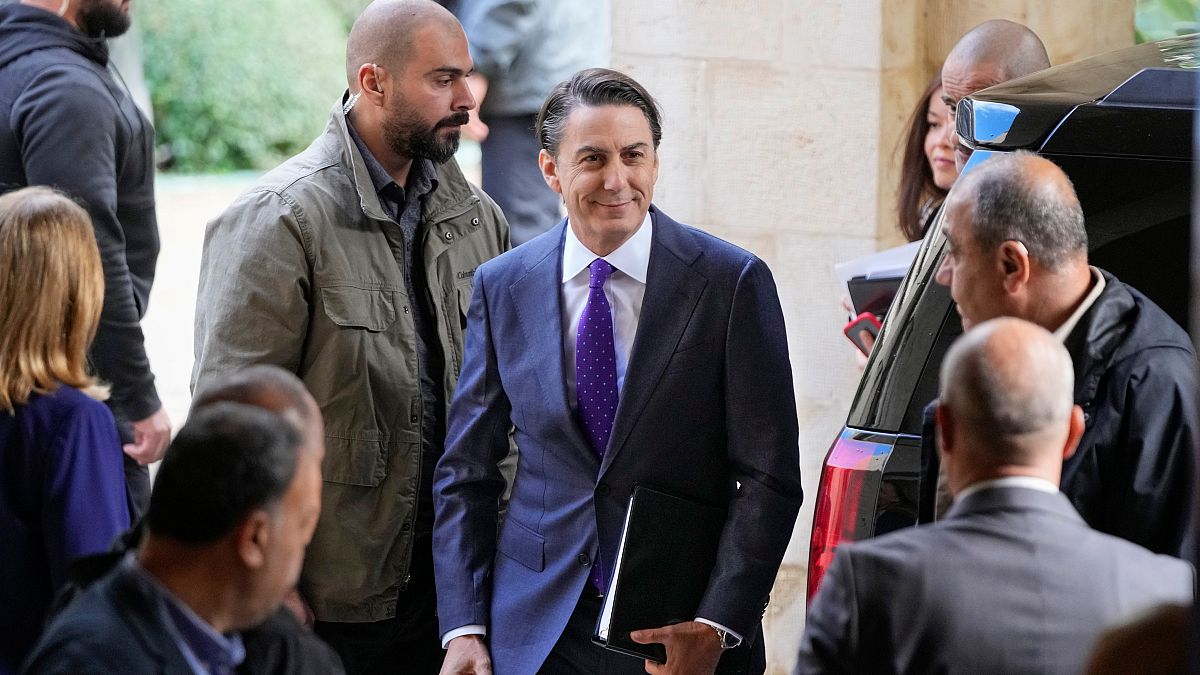Trump 2.0 is already stoking divisions within the European Central Bank
How to react to a president who could send prices soaring — or the economy into a downturn?
Divisions are growing within the European Central Bank over the best way to revive Europe’s flagging economy despite the uncertainty created by Donald Trump’s return to the White House.
Earlier this week, the outspoken governor of the Bank of Italy, Fabio Panetta, called for a more forceful approach to interest rate cuts, to combat low growth and address an industrial slump that is now two years old. He argued that inflation is now largely in line with the ECB’s 2 percent target, and that the Bank should focus more on reviving a “sluggish” economy.
“With inflation close to target and domestic demand stagnant, restrictive monetary conditions are no longer necessary,” Panetta said at a recent conference in Milan. “We need to normalize our monetary policy stance and move to neutral — or even expansionary — territory, if necessary.”
He appeared to get support on Thursday from the influential Bank of France Governor François Villeroy de Galhau, who argued that “the balance of risks on growth and inflation is … shifting to the downside,” and that possible U.S. tariffs are unlikely to change the eurozone inflation outlook in particular.
The ECB cut its benchmark interest rate by a quarter-point to 3.25 percent in October, in a last-minute move prompted by unexpectedly weak economic data. In Panetta’s view, a more forward-looking approach that considers risks to the real economy, or “directional guidance,” would avoid such mishaps, underpinning confidence both among businesses and households.
But the plea has been controversial. For one, many of his colleagues are loath to give up a policy they have grown to value. The “flexibility we have applied in navigating the challenges of the past few years will remain crucial in years to come,” board member Frank Elderson said on Thursday. For another, many in the Bank’s rate-setting Governing Council are worried that the fight against inflation — which the ECB has to give precedence — is far from over, as Trump 2.0 threatens to unleash trade war and a second, more virulent strain of protectionism on the world economy.
Austria’s Robert Holzmann shot back in an interview with Bloomberg on Thursday that predictions of an inflation undershoot, such as Panetta’s, “aren’t warranted.” He pointed not only to the geopolitical risks (which include hot wars as well as trade ones), but also to the latest developments in negotiated wage deals, which cover three-quarters of eurozone workers. They rose at the fastest annual rate in 30 years in the third quarter, although analysts — and the Deutsche Bundesbank — argued that the pace will slow from here on.
Given the high degree of uncertainty over how and when Trump will act, a “gradual and careful [approach is the most appropriate,” said Cypriot central bank chief Christodoulos Patsalides on a panel in Nicosia on Thursday — one of a number of comments suggesting that the ECB’s consensus is still more cautious than Panetta would like.
Uncertainty principle
The divisions are likely to play out at the last monetary policy meeting of the year on Dec. 12, when the ECB is expected to cut interest rates again, with the key issue now being: by how much?
The odds shifted in Panetta’s favor on Friday, though, after another dismal set of business surveys showed the eurozone economy taking another downward lurch. The euro hit a two-year low of $1.0333 against the dollar as traders raised their bets on a jumbo-sized half-point cut. The release “keeps up the pressure on the #ECB to cut in December and possibly go big,” said Peel Hunt chief economist Kallum Pickering on X.
Ultimately, it will come down to competing views on the future course of inflation in the event of a trade war. In a speech on Thursday, Dutch central bank Governor Klaas Knot highlighted the inflationary effects of adding costs to global trade through tariffs and urged Europe to be restrained if the expected blow comes.
Bundesbank president Joachim Nagel echoed the need for restraint in a speech on Friday, stressing that Europe should act “adequately and prudently.”

“A rules-based, multilateral trading system and trade agreements are to the benefit of all,” Nagel said. “Trade is not a zero-sum game. If everyone specialises in what they do best, all sides can win.”
One big issue is that it’s unclear whether Trump’s agenda — in particular his threat of 10 percent tariffs on all foreign goods — will ultimately slow or spur inflation. As Greek central bank chief Yannis Stournaras told POLITICO last week, it could go either way: unilateral tariffs could depress European growth further and thus send prices down. That risk becomes more acute if Chinese exports locked out of the U.S. market are re-routed to Europe from the U.S. market. On the other hand, a full-blown trade war (with tit-for-tat tariffs) could raise price levels everywhere.
Others have pointed out that tariff plans aren’t the only Trump variable in the mix. Corporate income tax cuts could help sustain the overall level of demand in the U.S., former ECB board member Jose Manuel Gonzáles-Paramo told POLITICO, also noting that Trump’s plans for mass deportations of illegal immigrants could easily overheat the labor market again.
Nor is the Trump agenda the ECB’s only concern. Board member Frank Elderson flagged ongoing risks from the conflicts in the Middle East and Ukraine in a speech on Thursday.
The next eurozone inflation data are due on Nov. 30 and the release is expected to show it creeping back above the ECB’s 2 percent target. The ECB expects it to stabilize around 2 percent early next year.
Johanna Treeck and Geoffrey Smith contributed reporting.
What's Your Reaction?


















































